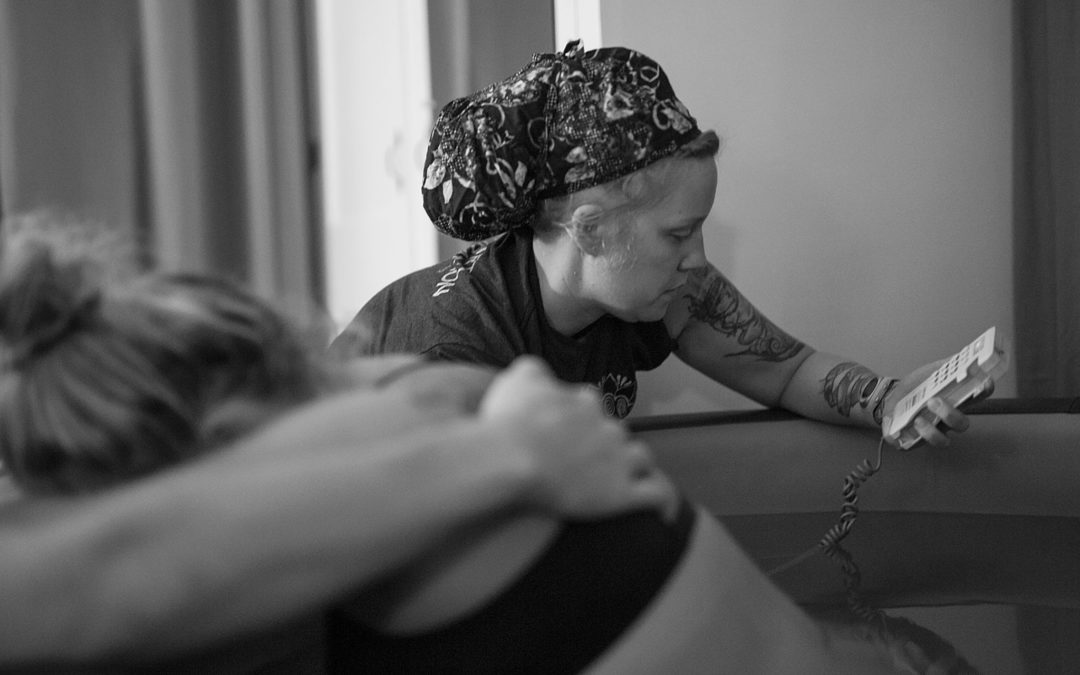Now that my due date is nearing, I get a lot of questions.
“How are you feeling?”
“Are you ready to be done?”
“Where are you delivering?”
The answer to that last one gets mixed reactions. We are planning to have our baby at home, just like our first!
While nobody responds with distaste, it does catch people off guard. Some women are well acquainted with home birth and others have never heard of having a baby at home and seem shocked by the idea. There are many reasons why I chose to have an out-of-hospital birth – and there are also a lot of myths about home vs. hospital births.

Photo credit Andrea Shandri/Andrea Oleson
MYTH: Home birth is dangerous
FACT: This is pretty broad, but often brought up. The truth is, birth in itself is not dangerous. If a woman is low-risk, home birth is very safe. Warning signs generally appear before labor begins if there is a problem, so midwives monitor for blood pressure, fetal position, etc., just as an OB would. If a midwife believe a woman needs to have medical care or a NICU available, she will be referred for care.
Another way of looking at this is to flip and say that hospital birth is safe, which in reality is also not true. Both maternal and infant deaths are much higher in the US than should be expected (we rank 29th in birth outcomes) and the majority of these are hospital, not home births.
MYTH: Midwives are not trained to handle emergencies.
FACT: Midwives are trained in emergency care just like any other health care provider. They carry the necessary equipment to provide help to either mom or baby if needed. My midwife came with oxygen and had the Doppler on me half the time; she wasn’t waving crystals over my belly and chanting. While hospital transfers certainly do happen (more for first-time mothers than beyond), they are generally not for life-threatening problems, but rather for stalled labor and a mama who needs some help, likely a little pitocin to get things moving along. Any midwife will tell you, you always need to have plan B.
The real truth here is that birthing outside of a hospital lowers the likelihood of intervention, which improves overall outcomes for moms and babies. One in three babies in the US is born via c-section, whereas only 5% of babies who are intended to be birthed at home are eventually born via cesarean.
MYTH: Birth is messy and will destroy your house!
FACT: Yes, birth is messy. Yes, at the hospital someone will come clean it all up. However, midwives are trained in preparing for birth and will help you prepare your birth space. We used lots of towels and absorbent pads, and after an unexpected land birth (I was completely sure I would give birth in water with my first) my midwife, doula and nurse cleaned everything up as I showered and my husband snuggled his daughter. This time around, I am going to try for water again! We use a local service that drops off and fills a portable hot tub for you, and then comes to clean up afterward. Easy peasy.
MYTH: Hospitals are cleaner
FACT: Your home contains your germs. The hospital contains other people’s germs. I don’t know about you, but I don’t want to expose my newborn (or myself) to MRSA and other crazy strains of bacteria that would never be found in my house. Birthing at home puts both mother and baby at a lower risk of infection.
MYTH: There’s no pain relief at home
FACT: While it is true that you aren’t going to have an epidural at home, there are lots of methods for pain relief. Hypnobirthing, essential oils, labor tubs, etc. – but you need to be prepared and do some work ahead of time. The Des Moines area has some wonderful instructors who can help you find the best method of pain reduction (please ask if you need information).
One of the main reasons I chose home is not included above: the care.
Midwives are more likely to give you plenty of time during appointments to discuss your pregnancy and answer questions, which is especially critical for first-time parents. They know what normal pregnancy and birth looks like, and rather than having you pee in a cup and put you in stirrups each visit, they ask about your diet and stress levels. A woman is a whole person with fears and excitement that they want to love and support. Babies born with home birth midwives are more likely to be carried to term, born at a higher birth weight, and be breastfed.
Bottom line: Don’t let myths and assumptions sway you. If you are unsure whether you want to give birth in a hospital, birth center or your own home, interview providers and ask questions. Home birth isn’t for everyone, but it might be for you!
A few links to peruse:


